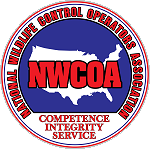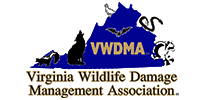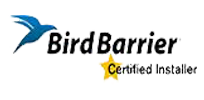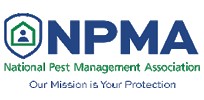Your Wildlife Professionals, Inc. provide squirrel removal and squirrel control from structures in Virginia.
Squirrel exclusion (Repairs) and squirrel trapping are key to effective squirrel removal. Knowing their biological habits, performing the necessary repairs, and the use of traps will solve most squirrel problems. When ideal habitat, water, and food for squirrels are within your property or structure, mfull exclusion services are recommended to prevent and or eliminate new msquirrels from trying to enter your residential or commercial structure.
​CLICK HERE to find Your Wildlife Professional in Virginia.
There are many different ways to get rid of squirrels, but if you are looking for a professional, permanent solution to your squirrel problem, with a written guarantee and warranted for a one year minimum, you have found one of the only companies in Virginia that can provide you with this and back it up.
Your Wildlife Professional will inspect every square foot of the exterior of your home or business looking for current and potential squirrel entry points. When they find these current and potential entry points they will seal them with 35 – 50 year sealant that is backed with a permanent squirrel proof material, install rigid screens, or chimney caps and covers. If you just repair the current entry points without sealing the potential penetration points, a different family of squirrels will just move to those potential entry points.
Squirrels create offensive odors and viruses due to their urine and droppings and disrupt your sleep with their gnawing. Squirrel removal is one of our specialties. We have helped restore peace of mind to over a thousand of residential and commercial customers over the last 18 years. Squirrel removal is a technical process that requires professional experience. Do not risk people’s health or yours to anybody. You can trust our trained professional staff to solve any squirrel problem you may have, guaranteed and warranted for a minimum of one year!
Your Squirrel Service Agreement will describe and identify, in written and/or graphed format, all of the inspected areas of the structure, current and potential squirrel entry points, contaminations, a description of the warranty, its limitations, and its time period, and a price to remove the squirrels from the structure.
In addition to the service agreement we may also take photos to document the inspected areas of your structure with current and/or potential squirrel entry points and contaminations as evidence/proof to you of the issues associated with the squirrels and to protect Your Squirrel Professional from any potential liabilities.
Your squirrel service agreement will also contain a description of the warranty, its limitations, and its time period. The warranty will not start until the final repairs on your structure or 100% eviction is confirmed by Your Squirrel Professional and you. It is limited to a family of squirrels entering the interior of your structure. The warranty time period will not be less than one year and will not exceed the manufacturer’s minimum service life of any exclusion material we use on your structure. Prior to your warranty expiring, we will send you a renewal notice letting you know your squirrel warranty is getting ready to expire. Upon the renewal payment, as stated on your squirrel service agreement, we will return to you structure for reinspection.
Your squirrel service agreement will contain a price to exclude and remove the squirrels from your structure. The price reflects the Your Squirrel Professional’s ability and experience to perform msquirrel removal services based upon industry standards, material costs, labor, and profit.
What happens after the squirrels are removed from your structure?
Squirrel Exclusion is a technique where all the current and potential mouse entry points stated in your squirrel service agreement, are made uninhabitable or impervious to a squirrel by the use/application/installation of exclusion materials by Your Squirrel Professional.
Squirrel Exclusion materials are squirrel proof building materials or components that may be used/applied/installed/dispensed, but are not limited to, caulk, adhesives, or sealants, backer rod, chinking, foam, wire mesh, metal flashing or coil stock, chimney caps, or any other squirrel proof building construction materials that will prevent squirrels from entering your structure once the squirrel repairs have been completed
Squirrel Exclusion materials will be applied to all current and potential squirrel entry points that lead into the interior of your structure from the exterior of your structure. Squirrel entry points are any area typically above the gutter lines of your structure and any areas that may emit air draft from your structure that are greater than or equal to 2 inches round or 2 inches wide and 32 inches long regardless of its orientation.
How Your Squirrel Professional removes squirrels from your structure.
Squirrel removal is a process of removing squirrels from a residential or commercial property by the use of traps and exclusion materials.
Professional grade single door or colony humane capture traps are commonly used. Live single door cage traps are anchored on the building next to the hole. Live colony traps are anchored over the hole and the squirrel is forced into the trap. Once the squirrels are trapped, we repair the hole where they are entering so that it will not happen again.
Your Wildlife Professionals, Inc. provides rodent control, squirrel pest control, squirrel removal, squirrel removal, squirrel control, squirrel control, can get rid of squirrels, and squirrel infestations in the counties, cities and towns of Alexandria, Arlington, Bedford, Blacksburg, Bristol, Charlottesville, Covington, Chesapeake, Danville, Fairfax, Fredericksburg, Hampton, Harrisonburg, Lexington, Lynchburg, Loudon, Manassas, Martinsville, Newport News, Norfolk, Richmond, Roanoke, Smith Mountain Lake, Staunton, Virginia Beach, Waynesboro, Williamsburg, Winchester, Wytheville, and Yorktown Virginia.
​CLICK HERE to find Your Wildlife Professional in Virginia.












